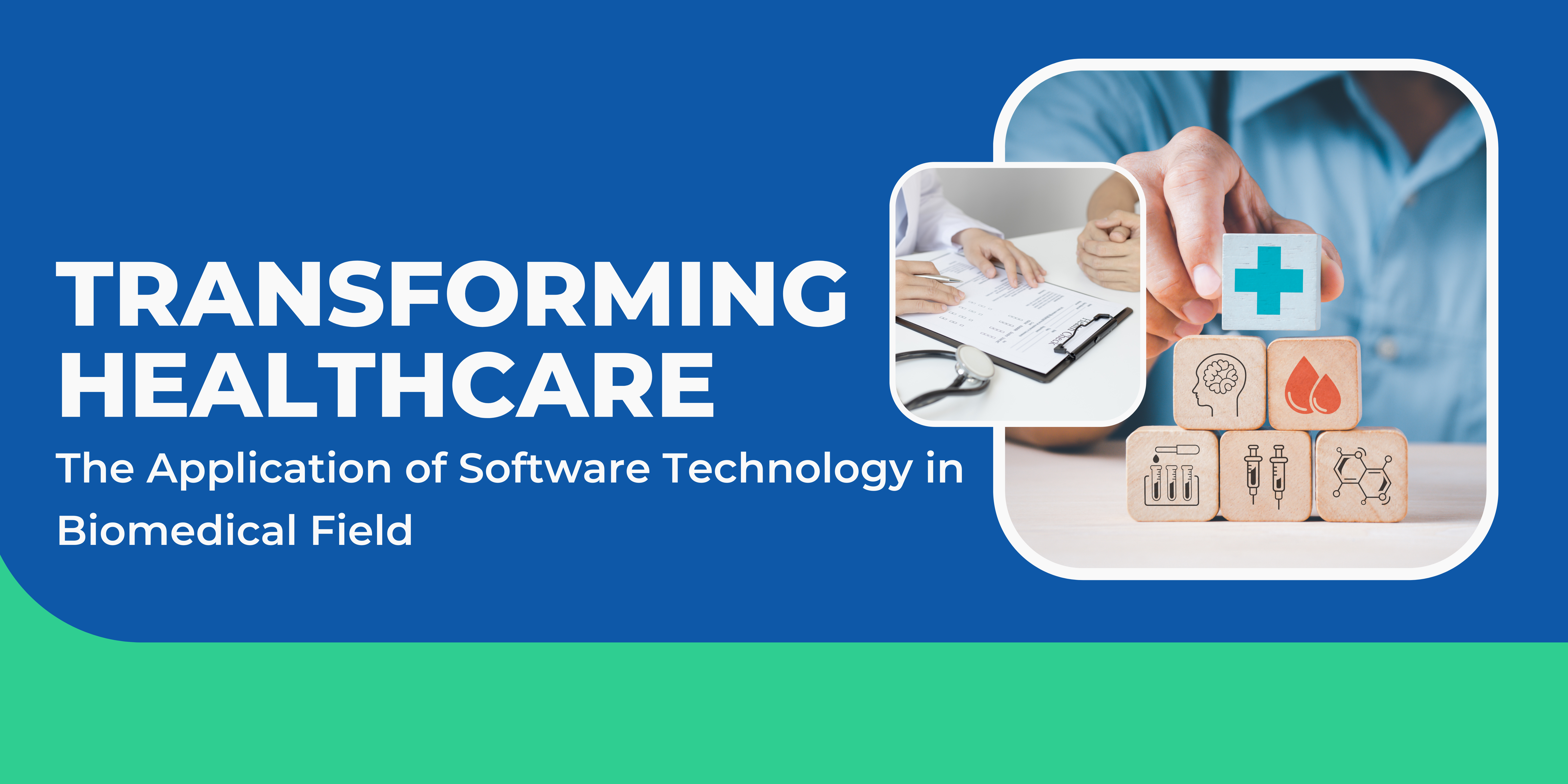Transforming Healthcare with Software Technology in the Biomedical Field
Transforming Healthcare: The Application of Software Technology in the Biomedical Field
In an era marked by drastic technological advancement, perhaps one of the most promising frontiers lies at the intersection of software technology and the biomedical field. This convergence has paved the way for groundbreaking innovations, revolutionising healthcare delivery, diagnostics, treatment, and research. From streamlining administrative tasks to facilitating complex medical procedures, software technology has become an indispensable tool in modern biomedicine.
At Sri Ramakrishna Engineering College (SREC), this transformative potential is being realised through cutting-edge software development and learning facilities. With the intent of bridging the gap between technology and healthcare, SREC is at the forefront of empowering the next generation of biomedical professionals with the skills and knowledge needed to leverage software solutions for healthcare advancement.
Central to the application of software technology in biomedicine is the optimisation of patient care and management. Electronic Health Records (EHR) systems, for instance, have transformed the way patient information is recorded, stored, and accessed. These systems not only restructure administrative tasks but also enable healthcare providers to make informed decisions based on comprehensive patient data.
Moreover, software applications empower patients to actively engage in their healthcare journey. Mobile health apps allow individuals to monitor vital signs, track medication adherence, and even consult with healthcare professionals remotely. This not only promotes patient autonomy but also facilitates early intervention and preventive care.
In the realm of diagnostics and imaging, software technology has catalyzed significant advancements. Medical imaging software, equipped with powerful algorithms and machine learning capabilities, can analyse complex imaging data with unprecedented accuracy. This enables clinicians to detect abnormalities, diagnose diseases, and plan treatments with greater precision.
Furthermore, software-driven diagnostic tools are revolutionising genetic testing and personalised medicine. Bioinformatics software processes vast genomic datasets, identifying genetic variations associated with disease susceptibility, drug response, and prognosis. Such insights empower healthcare providers to tailor treatments according to individual genetic profiles, maximising efficacy and minimising adverse effects.
Software technology plays a pivotal role in accelerating medical research and development. Bioinformatics tools, for instance, enable researchers to analyse genomic, proteomic, and metabolomic data, unravelling the intricate mechanisms underlying disease pathogenesis. This knowledge not only fuels the discovery of novel therapeutic targets but also facilitates the development of targeted therapies and precision medicine interventions.
Moreover, software platforms facilitate collaboration and data sharing among researchers worldwide, fostering interdisciplinary approaches to complex biomedical challenges. From drug discovery to clinical trial management, software solutions streamline every stage of the research continuum, expediting the translation of scientific discoveries into clinical practice.
In addition to revolutionising traditional healthcare paradigms, software technology is instrumental in addressing emerging healthcare challenges. For instance, Artificial intelligence (A.I.) and machine learning algorithms are being harnessed to analyze healthcare data, forecast disease outbreaks, and optimize resource allocation in healthcare systems. This not only enhances epidemic preparedness but also improves healthcare accessibility and affordability.
Furthermore, telemedicine platforms powered by software technology bridge geographical barriers, connecting patients with healthcare providers irrespective of their location. This is particularly crucial in underserved communities and remote regions with limited healthcare services. By leveraging telemedicine solutions, healthcare organizations can expand their reach, improve patient outcomes, and minimize healthcare disparities.
In a nutshell, the application of software technology in the biomedical field represents a paradigm shift in healthcare delivery, diagnostics, treatment, and research. From enhancing patient care and management to advancing diagnostics and imaging, software-driven innovations are driving transformative changes across the healthcare landscape. By harnessing the power of software technology, institutions like Sri Ramakrishna Engineering College (SREC) are contributing to the realization of personalized, precise, and patient-centered healthcare, ultimately improving health outcomes and quality of life for individuals worldwide.
- K.S. SIVANESHAKUMAR
BME 1ST YEAR


